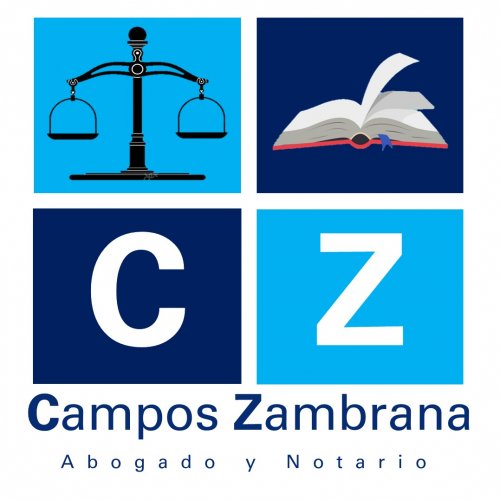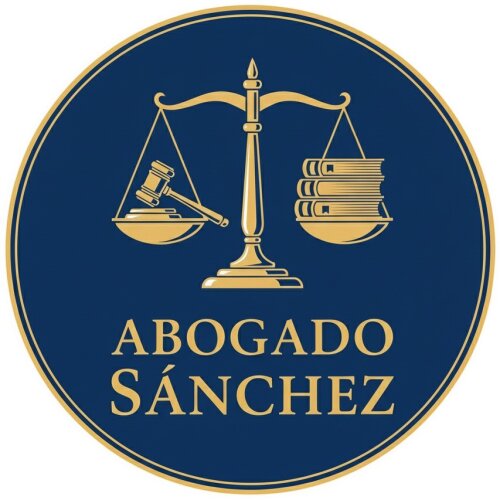Best Divorce & Separation Lawyers in Nicaragua
Share your needs with us, get contacted by law firms.
Free. Takes 2 min.
Free Guide to Hiring a Family Lawyer
Or refine your search by selecting a city:
List of the best lawyers in Nicaragua
About Divorce & Separation Law in Nicaragua
In Nicaragua, the legal process of Divorce & Separation is governed by the Civil Code, which outlines the grounds and procedures for legally ending a marriage. The law aims to resolve issues such as the division of property, child custody, and spousal support. Divorce can be granted on several grounds, including mutual consent, irreconcilable differences, adultery, abandonment, or abuse. It's important for individuals going through a divorce to familiarize themselves with the local legal processes to ensure a fair resolution to all parties involved.
Why You May Need a Lawyer
Seeking the guidance of a lawyer during a divorce or separation is crucial in navigating the often complex legal landscape. Key situations where legal assistance is beneficial include:
- Disagreement with your spouse regarding custody or asset division.
- Need for legal documentation and representation in court proceedings.
- Understanding your legal rights and obligations to avoid future disputes.
- Protection from an abusive spouse.
- Negotiating spousal or child support agreements.
Local Laws Overview
The Nicaraguan Civil Code regulates Divorce & Separation, emphasizing both judicial and extrajudicial processes. Divorce by mutual consent requires an agreement regarding property division and child-related issues. Typically, a judge will finalize the process. Challenges may arise in contested divorces where parties disagree on terms. The Code also prescribes specific residency requirements and conditions under which alimony can be granted. Child custody laws primarily focus on the child's best interest, and parents are encouraged to reach amicable arrangements.
Frequently Asked Questions
What are the grounds for divorce in Nicaragua?
Nicaragua recognizes both no-fault divorces, like mutual consent, and fault-based grounds, such as adultery, abandonment, or abuse.
How long does it take to get a divorce in Nicaragua?
The duration varies, but amicable divorces may complete within a few months, whereas contested cases can take significantly longer.
Is there a residency requirement for filing for divorce?
Yes, at least one spouse must be a resident of Nicaragua to file for divorce in the country.
How is property divided during a divorce?
Nicaragua follows a community property system where assets acquired during the marriage are typically divided equally unless stipulated otherwise in a prenup.
What laws protect children in a divorce?
Child custody and support are determined based on the best interests of the child, and the court may appoint a guardian ad litem to represent the child’s interests.
Can I get spousal support/alimony?
Alimony may be awarded if one spouse needs financial support post-divorce, based on the length of the marriage, and the financial state of both parties.
How is child support calculated?
Child support is determined by the needs of the child and the financial capacity of both parents, often in proportion to their income.
Is mediation required before going to court?
Mediation is encouraged to resolve disputes amicably but is not mandatory. Successful mediation can expedite the process.
Can I appeal a divorce decision?
Yes, parties can appeal a divorce ruling if there is a belief that the decision was not made in accordance with the law.
What is the impact of remarriage on divorce settlements?
Remarriage can affect alimony but does not typically impact the division of assets or custody arrangements established in the original divorce.
Additional Resources
For those seeking further assistance, consider reaching out to the Nicaraguan Ministry of Family, or local legal aid organizations focusing on family law. Additionally, several nongovernmental organizations provide support for victims of domestic violence, offering guidance and shelter.
Next Steps
If you require legal assistance, begin by gathering necessary documentation related to your marriage, assets, and children. Seek a consultation with a qualified family law attorney who can offer specific advice tailored to your situation. It's also beneficial to explore mediation services to potentially resolve disputes outside of court, which can be less costly and time-consuming.
Lawzana helps you find the best lawyers and law firms in Nicaragua through a curated and pre-screened list of qualified legal professionals. Our platform offers rankings and detailed profiles of attorneys and law firms, allowing you to compare based on practice areas, including Divorce & Separation, experience, and client feedback.
Each profile includes a description of the firm's areas of practice, client reviews, team members and partners, year of establishment, spoken languages, office locations, contact information, social media presence, and any published articles or resources. Most firms on our platform speak English and are experienced in both local and international legal matters.
Get a quote from top-rated law firms in Nicaragua — quickly, securely, and without unnecessary hassle.
Disclaimer:
The information provided on this page is for general informational purposes only and does not constitute legal advice. While we strive to ensure the accuracy and relevance of the content, legal information may change over time, and interpretations of the law can vary. You should always consult with a qualified legal professional for advice specific to your situation.
We disclaim all liability for actions taken or not taken based on the content of this page. If you believe any information is incorrect or outdated, please contact us, and we will review and update it where appropriate.
Browse divorce & separation law firms by city in Nicaragua
Refine your search by selecting a city.










